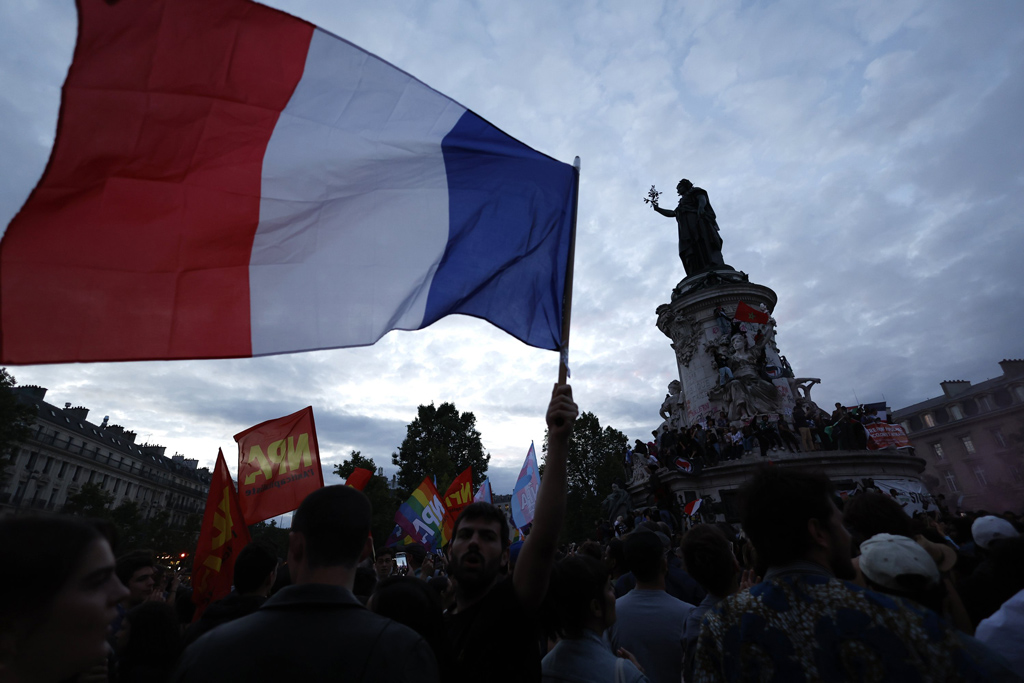The year 2024 is the election year for many Western countries. While some influential Western states held elections already, some others will hold elections during the second half of this year. It is truly sad and unfortunate to see once liberal Western countries competing in ultranationalism, fascism and racism. Some elections in Western countries are being fought between fascism and ultra-fascism. Radical actors have become part of the mainstream political life in many Western countries. Many political actors compete to achieve their objectives through the use of power politics and the mobilization of authoritarian and unilateral mechanisms. These political actors consider many regional and global problems as a given and have no will to solve these problems. Therefore, they even do not think about discussing these conflicts.
In almost all elections in the West, we see increasing polarization. One of the main reasons for high turnouts is the increased polarization and the fear from the far-right political parties. It is interesting to see the increasing polarization of Western societies between the supporters of universal values and the ultranationalists who alienate all “others.” We live in an era in which the populist and ultranationalists from both right and left dominate their respective governments and decision-making processes. Radical political actors have a great direct or indirect influence on the political lives of their respective countries. Let’s look at the three most important Western countries to see the real picture.
The most important election, the result of which will influence the whole world, is the U.S. presidential elections that will be held in November. The presidential elections between Joe Biden and Donald Trump will not change the U.S. foreign policy stance toward many regional and international crises. It is clear to everybody that both candidates compete for their unconditional support for Israel's ongoing genocide in Gaza. It was really interesting to see that Trump accused Biden, who has been giving unconditional support to Israel, of not mobilizing all American resources to the state of Israel. Trump even tried to insult Biden by calling him “Palestinian.”
Similarly, the elections held in the United Kingdom demonstrate that the U.K. will not change its stance toward many regional and global issues, including the Ukrainian-Russian War or the Israeli atrocities in Palestine. Although the Labour Party won a decisive victory in the elections and came to power, the new government will continue its unconditional support of the Israeli atrocities and the Ukrainian government. It is true that some members of the party call for an immediate halt of British support to Israel and for a cease-fire in Palestine. However, it is also clear that these calls will not be reflected in governmental decisions.
As a reflection of this understanding, while the new British Prime Minister Keir Starmer condemned the Russian attack on a hospital in Kyiv, called the attack “the most depraved of actions” and declared its support for Ukraine, he did not make a similar call for Israel’s genocidal acts. Starmer, who previously pointed out that Israel has the right to starve the people of Gaza within the context of self-defense and held only Hamas responsible for the tragedy in the Palestinian lands, declared unconditional support for Israeli atrocities. After he came to power, he called Netanyahu and told him that he looked forward to further deepening the close relationship between the two states. In other words, with the government change in the United Kingdom, nothing will change.
Polarized politics in France
A similar picture was taken in France during the latest snap parliamentary elections, which left France in a polarized political atmosphere. Although the legislative elections are won by a leftist coalition, the far-rightist political party, the National Rally, came third and won 143 seats in parliament. It increased the number of its seats in parliament from eight to 86, and then to 143. Therefore, the leader of the National Rally, Marine Le Pen, who is considered the main challenger to the incumbent President Emmanuel Macron, plans to run for the presidential elections in 2027.
All in all, political polarization can be seen all over Europe. On the one hand, ultraconservatives form a coalition against all others, including the European Union, multiculturalism, Blacks and Muslims. On the other hand, other groups, mainly leftists and centrists, form another coalition, which supports multiculturalism, liberal values and universalism. However, when it comes to policymaking, there is no real difference between the mainstream right and left. All support authoritarian tendencies, unilateralism and interventionism.
Mainstream political parties have been trying to prevent far-rightist groups from coming to power, but they fail to do so. Although the so-called radical actors are left out of power, their political discourses and ideas rule their respective countries. Most mainstream political parties, including the Democrat Party in the United States, the Labour Party in the United Kingdom and the Socialist Democratic Party of Germany, moved to the far right. Therefore, all these political parties insistently support the ongoing Israeli atrocities in Palestine.
Therefore, realizing the hypocrisy of their political leaders, many people in the West have lost their trust in politics and politicians. Western politicians who condemn Russia for targeting civilians in Ukraine have never questioned the mass killing of children and women in Gaza. Ultimately, Western political systems will be questioned by Western societies in the near future. Sooner or later, Western people will learn who is the kingmaker in their respective states and who controls official policymaking.






